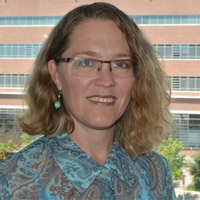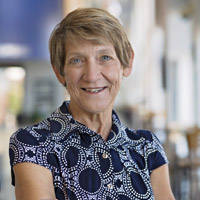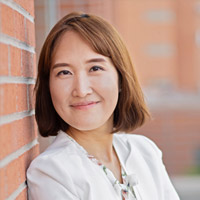AURORA, Colo. (July 19, 2023) – As the American population grows older and life-extending technologies improve, the number of people taking care of their family members has increased. Nearly 17% of the adult population or 53 million people today provide unpaid care to a relative or other loved one with a chronic disease, according to Caregiving in the U.S. 2020 report. Ironically, the emotional, financial and physical burden of taking care of someone decreases the caretakers’ own health and quality of life – leading them down the same path of needing a caretaker.
That’s why the University of Colorado College of Nursing at the Anschutz Medical Campus undertook a study to learn if digital health technology can help caretakers get moving and stay healthy. The study, conducted by Dawon Baik, Blaine Reeder, Heather Coats, Christina Baker and Catherine Jankowski and published in Informatics for Health & Social Care, found digital health technologies in the home like Fitbits, telehealth, and motivational messages can help older family caregivers engage in home-based physical activities. The study found the digital health helps them exercise because it saves travel time, engages them in activities and supports their health and wellness.
“It's the thing that keeps you from going crazy sometimes,” a family caregiver told researchers about exercising.
The research was supported by the National Institute of Aging at the National Institutes of Health and the University of Colorado College of Nursing.
The findings show more research needs to be done in the area to help older adults promote their physical function and psychological wellbeing. Researchers interviewed 13 older adults taking care of spouses or relatives specifically with heart failure, because the caregiving burden is heavy on that population of caretakers and they are more likely to feel distress and not take care of their own health. Family caregivers who live with their relative spend an average of 37.4 hours a week on direct caregiving duties.
Another key finding is that some of the caregivers were self-motivated and willing to embrace technology to help improve their physical fitness. Many older family caregivers learned and became comfortable using technology during the COVID-19 pandemic. Before the pandemic, 30% of older adults said the internet was essential to their daily lives, while today about 40% of older adults believe it’s essential. While the caregivers like using fitness apps, mobile applications, fitness trackers and internet access to watch fitness videos, the study participants said they do not like coaching or fitness help via texting.
The family caretakers also told researchers they’re more likely to exercise if there is a home gym, equipment nearby, and social support from family, friends, children and grandchildren.
“I don’t want my kids to say I walk like an old lady or have my grandkids tell me that they want me to get down on the floor and play with them, but I can’t because I’m too broken up. So that’s why I stay physically active every single day,” a female caregiver told researchers.
Researchers believe the study provides important implications for addressing the personal, environmental and behavioral factors that can either help or block older caregivers from being healthy and strong.
“Further studies that design innovative digital interventions to improve the quality of life in older caregivers should focus on enhancing physical and psychological health. Because the COVID-19 pandemic stimulated increased technology use by older adults, it is an auspicious time to design and deliver interventions using digital health technology for family caregivers. The unique needs and self-efficacy for physical activity engagement of older caregivers is an important aspect of heart failure patient care that requires greater attention because the health of the informal caregiver and heart failure patient are entwined,” said researchers.
About the University of Colorado Anschutz Medical Campus
The University of Colorado Anschutz Medical Campus is a world-class medical destination at the forefront of transformative science, medicine, education and patient care. The campus encompasses the University of Colorado health professional schools, more than 60 centers and institutes, and two nationally ranked independent hospitals - UCHealth University of Colorado Hospital and Children's Hospital Colorado - more than two million adult and pediatric patients each year. Innovative, interconnected and highly collaborative, the University of Colorado Anschutz Medical Campus delivers life-changing treatments, patient care and professional training and conducts world-renowned research fueled by over $650 million in research grants. For more information, visit www.cuanschutz.edu.
Download Press Release: Heart Caregivers PR 0723






